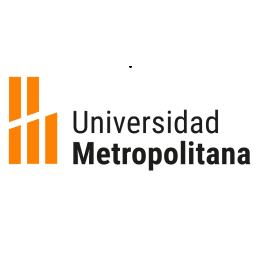Within the European Union (EU), development of the social economy has been highlighted as an important and decisive factor for increasing the EU’s competitiveness and developing a more sustainable society. In this development, HEIs are an important player in what is known as the quad-drupel helix of collaboration. Likewise, social innovations and social entrepreneurship are mentioned as key areas for the development of the social economy. However, there is research that shows that European universities do not have the knowledge or experience to systematically work with social innovations, as this is something that has not been prioritized.

Cinar and Benneworth (2020) argue that European universities have never really had formally societal missions, other than arguably in the 1970s to become oriented towards mass democracies (Daalder & Shils, 1982; Delanty, 2002). Tapia (2008) highlighted the fact that in Latin America, a series of protests spread out from universities starting in Cordoba, Argentina in 1919, against the elite closure of universities. This led to a series of reforms in these countries in which universities were connected much more closely to their societies, with much greater societal duties, even being used as a way of providing social services in remote places (e.g., Ramirez, 2011). Cinar and Benneworth (2020), therefore, urge those interested in universities and social innovation to look to these examples of Latin American universities’ social missions to better understand the way that university knowledge processes can support social innovation in various ways.
In this session I would like to discuss opportunities for collaboration around social innovations between Latin american universities and the EUTOPIA alliance, which consists of 10 universities (Eutopia (eutopia-university.eu)). One strategic objective for the current phase is to enable EUTOPIA alliance and its partner institutions to jointly undergo further institutional transformation driven by principles of sustainable development. One strategic area that has been identified is social innovations and social entreprenuership for sustainable development.

A key question and key challenge is what is needed to develop an institutional infrastructure and institutional logic that supports and strengthens processes for social innovations? A Social Innovation Lab (SIL) could serve as a tool to create an institutional infrastructure and logic. These SILs are collaborative spaces that bring together diverse stakeholders, including citizens, entrepreneurs, academics, and policymakers, to co-create and test solutions to complex social and environmental challenges. They facilitate the exchange of ideas, foster collaboration, and support the development of scalable and sustainable innovations. How do the HEIs develop a systematic work with executing SILs, that are of interest for diverse stakeholders, what prerequisites are needed?
Related Topics:
• The strategic importance of innovation in universities, for their competitiveness and relevance.
• Innovative Teaching and Learning Models: Beyond Investment in Technology.
• Impact of innovative management on the organization and processes of the University.
If there is any interest in applying to this initiative, the following should be considered:
• Contact Eddi Omrcen: eddi.omrcen@gu.se
• Info EUTOPIA Alliance: Eutopia (eutopia-university.eu)
• Info EU Social economy program: Social Economy Action Plan – Employment, Social Affairs & Inclusion – European Commission (europa.eu)
Principal Researcher: Eddi Omrcen
Institution: University of Gothenburg
Country: Sweden
Email: eddi.omrcen@gu.se
Eddie Omrcen dirige el Equipo de Gestión Medioambiental de la Universidad y es responsable de desarrollar y aplicar el Sistema de Gestión Medioambiental certificado según ISO 14001 y EMAS. Ha investigado sobre estrategias empresariales de prevención de la contaminación, desarrollo de productos adaptados al medio ambiente y desarrollo de sistemas de gestión medioambiental. Durante varios años, también investigó sobre proyectos, gestión de proyectos, organizaciones temporales e intraemprendimiento. Ha trabajado como consultor en los campos de sistemas de gestión medioambiental, gestión del cambio, gestión de proyectos, intraemprendimiento y espíritu empresarial. Es licenciado en Administración y Dirección de Empresas por la Facultad de Ciencias Empresariales, Económicas y Jurídicas de la Universidad de Gotemburgo.
Columbus Association, 2023.









































